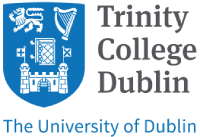Prof L. Bradley
No more applications being accepted
Funded PhD Project (European/UK Students Only)
About the Project
Applications are invited for two four-year PhD studentships in the Nanophotonics and Plasmonics research team of Prof. Louise Bradley in the School of Physics, Trinity College Dublin. Successful applicants will join a vibrant team of students and postdoctoral researchers. Trinity College Dublin is ranked 1st in Ireland and in the top 100 world universities by the QS World University Rankings. Further information on the Bradley group can be found at https://www.tcd.ie/Physics/research/groups/bradley-photonics/.
Post-fabrication tuning of plasmonic structures and metamaterials across the visible and near-infrared spectral ranges continues to pose significant challenges. This research will consider different options for controlling the plasmonic properties of noble metal antenna coupled to quantum emitters, for example phase change materials or 2D materials. One of the PhD positions will concentrate on phase change materials with the other on 2D materials. Both material options are promising routes to dynamic electrical controlled of plasmonic coupled systems, but significant research is required to determine the optimal implementation.
Each project will involve experiments and simulation. The successful applicants will develop skills in materials growth via sputtering and/or plasma laser deposition, He-ion and e-beam lithography and imaging as well as optical and electrical characterisation of plasmonic devices coupled to emitters such as quantum dots. Complementary simulations to design structures and interpret experimental observations will be performed using finite difference time domain software, which is available within the group.
These studies will provide an excellent base for a career both in academia and in high-value industry.
The research is funded by Science Foundation Ireland.
The successful candidates will be highly self-motivated and have a first class or upper-second class honours degree from an Irish university, or an equivalent from another country, in Physics, Theoretical Physics, Material Science or Nanoscience, with a strong interest in photonic materials and applications. Knowledge of Chemistry would also be helpful but not essential. A M.Sc. in a related area would be an advantage. A high level of written and oral communication skills in English is essential.
Prospective candidates should send a detailed CV, a covering letter outlining their educational background, research interests and motivations, transcript of your marks if available, and the names and contact details of three academic referees to Prof. Louise Bradley([Email Address Removed]). Following receipt of your application, Prof. Bradley will be available to discuss the research programme in further detail. The anticipated start date of the project is December 2017 but this can be flexible to the timetable of the successful candidate.
All applicants whose first language is not English and who have not been educated through the medium of English must present one of the following qualifications in the English language to be eligible for registration in the University:
• IELTS: Grade 6.5 overall
• TOEFL: 88 internet-based, 570 paper-based, 230 computer-based
• University of Cambridge:
Proficiency Certificate, Grade C or better (CEFR Level C1 or C2)
Advanced Certificate, Grade C or better (CEFR Level C1 or C2)
• Pearson Test of English (Academic) - PTE Academic: a minimum score of 63 to be eligible (with no section score below 59)
Please note that test scores are only valid for 2 years.
Funding Notes
Stipend: €16,000 per annum for 4 years in addition to tuition fees.
Funding is available for Irish and EU students.
International applicants with full funding are welcome to apply. Proof of funding will be required at application stage.
An application deadline of December 1st is preferred, but applications will be accepted until suitable candidates are identified.

 Continue with Facebook
Continue with Facebook

